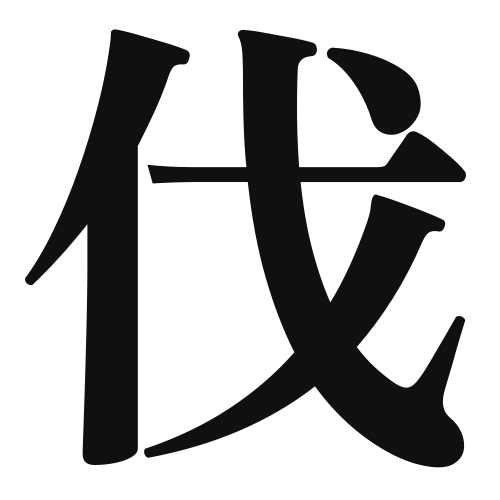1. Overview of Meaning
The kanji “伐” (pronounced “batsu” or “baru”) primarily means “to cut down” or “to fell,” especially in reference to trees. It conveys the action of chopping or severing something, often used in contexts related to forestry or agriculture.
2. Formation and Radical
Formation of the Kanji: The kanji “伐” is a compound character that combines elements to convey its meaning. It is formed from the radical “人” (person) and the phonetic component “伐,” which suggests an action performed by a person.
Radical: The radical of “伐” is “人,” which indicates that the character is related to human actions or activities.
3. Examples of Usage
Common Words and Phrases: Some frequently used words that include “伐” are “伐採” (batsusai – logging) and “伐木” (batsumoku – timber cutting).
Example Sentences in Daily Conversation:
- 「森で木を伐ることは、環境に影響を与える。」 (Cutting down trees in the forest affects the environment.)
- 「彼は山で伐採の仕事をしている。」 (He works in logging in the mountains.)
4. Synonyms and Antonyms
Similar Kanji: A similar kanji is “切” (setsu – to cut), which also means to cut but can refer to cutting in a broader sense, such as cutting paper or fabric, rather than specifically felling trees.
Opposite Kanji: An antonym is “生” (sei – to live or grow), which represents the idea of growth and life, contrasting with the act of cutting down or destroying.
5. Cultural and Historical Background
Relation to Japanese Culture: The act of cutting down trees has significant implications in Japanese culture, particularly in traditional practices like forestry and agriculture. It reflects the balance between utilizing natural resources and preserving the environment.
Proverbs and Idioms: One relevant proverb is “木を伐る前に、まずは考えよ” (Before cutting a tree, think first), which emphasizes the importance of careful consideration before taking action.
